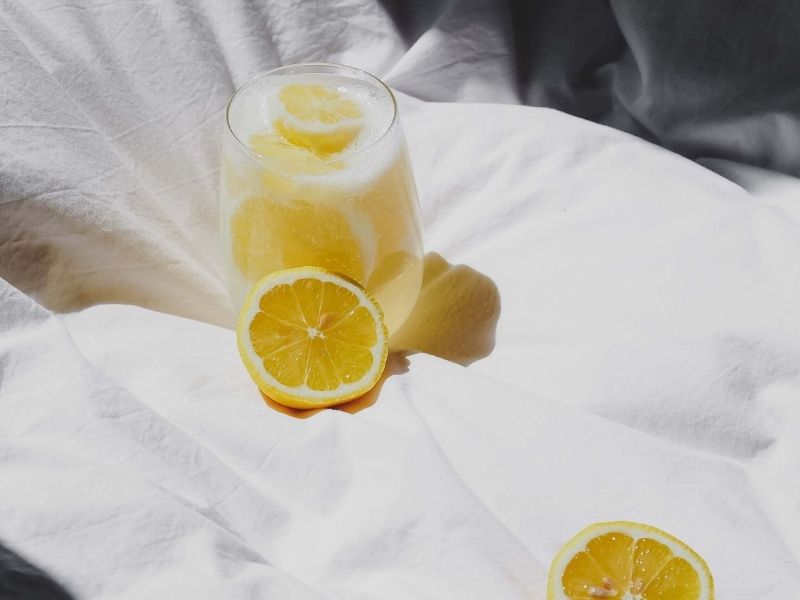Overactive bladder (OAB) is a condition that affects many women. It’s not life threatening, but it sure can be a pain. This is why, along with other treatments, many women with this condition make lifestyle changes to help manage their symptoms.
While there is no ‘Overactive Bladder Diet,’ there are many types of foods and beverages that can irritate your bladder and exacerbate your symptoms. You may want to limit these foods and beverages to see if that helps you.
If you’d like to learn more about how your diet choices can impact your overactive bladder, keep reading!
What Is Overactive Bladder?
Overactive bladder (OAB), is a condition that affects 10-15% of women.1 Like you probably guessed, women with this condition have a bladder that is overactive, leading to frequent, sudden urges to urinate that they may or may not find difficult to control.
Women with this condition may also frequently urinate—i.e.: they urinate more than 8 times in a 24 hour period. They may also have nocturia, in which they have to urinate at least 2 times a night. And they may also experience urinary incontinence, in which they lose control and leak urine.
OAB can be caused by many factors, including nerve damage, urinary tract infections, certain medications, and weak pelvic floor muscles. Thankfully, there are many ways to treat and manage OAB symptoms—which may include making decisions about your diet.
Food and Beverages To Avoid When You Have an Overactive Bladder
Like we’ve covered, there is no specific diet to follow if you have OAB. That said, lifestyle choices can have a big impact on your symptoms. For this reason, you should try to reduce and/or avoid food and beverages that irritate your bladder.
Of course, we’re all different, so what helps one person might have little impact on the next. That’s why it’s often a good idea to keep a journal of what and when you are eating and drinking, along with your symptoms. When you track your symptoms like this over time, you start to get a better picture of what your bladder finds irritating.
Foods To Avoid With OAB
For many people, the following foods can irritate their bladder:
- Acidic foods, such as tomatoes and tomato products like ketchup and pasta sauces, as well as citrus fruits
- Spicy foods
- Artificial sweeteners and processed foods
- Spicy foods
- Salty foods—new studies show that salt restrictions may help overactive bladder symptoms
- Chocolate—sorry, ladies!
Chocolate is on this list due to its caffeine content (which we’ll cover further below). But take heart! There’s no need to take an all-or-nothing approach or to start cutting out whole food groups willy-nilly.
Remember, you don’t know yet what impacts your bladder. Go slowly, keep track of your symptoms, and enjoy learning more about your body. And even if you find your favorite food does in fact irritate your bladder, there’s no rule that says you can never enjoy it again. You just might need to enjoy it in moderation.
Finally, note that being overweight puts pressure on your bladder. 2 Therefore, one of the best things you can do for your bladder is to maintain a healthy weight and a generally healthy diet. Oh, and don’t smoke (did we need to tell you that?)!
How To Drink With OAB
It’s totally tempting to try to stop drinking when you have OAB. Not drinking equals not having to pee, right?
Wrong. In fact, being too dehydrated can also irritate your bladder. That’s why you want to drink plenty of water, although you may want to moderate when you’re drinking, and again, keep a journal. Learn more about water intake and incontinence here.
Sadly for all you soda water fans out there, you may want to avoid seltzer water if you have OAB (learn about seltzer water and your bladder here).
And sadly for all you coffee-lovers, reducing caffeine intake to below 100 milligrams per day may help reduce your symptoms. 3 That means you will want to carefully monitor how much coffee, tea, and other caffeinated beverages you’re drinking (or how much chocolate you’re eating!).
Finally, alcohol is a diuretic and is therefore something else you will want to avoid or limit as much as possible.
Remember, ‘as much as possible’ is the operative word here. There’s no reason to be overly strict with yourself—we’ve already got enough stress in our lives. But there are so many reasons to treat your OAB (not the least of which because it impacts your mental health), and lifestyle changes are some of the simplest yet most powerful you can make. Plus, they’ll have lots of other positive impacts on your life, too.
And remember that your first step if you think you have OAB should always be to see your doctor. They can help you figure out the right lifestyle interventions and other treatment options for you. Use our Physician Finder to find one in your area.




















